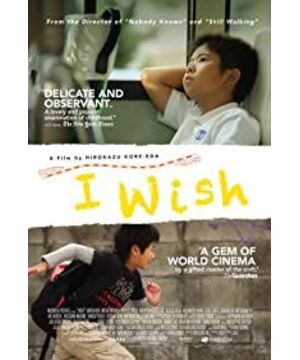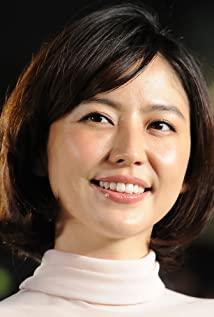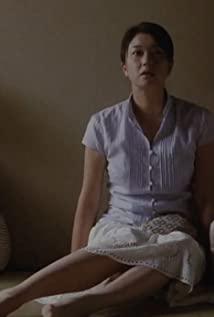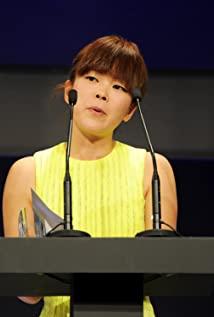For a movie about the "Kyushu Shinkansen" proposition, it was Hirokazu Edema who undoubtedly handed in the answer with full marks. This movie has a child theme similar to "Nobody Knows", and it also has family affection similar to "Non-Stop". In "Nobody Knows" and "Non-Stop Walking", there are also fewer tracks of trains ("Nothing appears at the end of the climax, "Step" appears at the beginning"). Therefore, the three movies are related and continuity in a sense. Then each part reflects the different themes that Hirokazu Edema wants to interpret-"Nobody Knows" is a mixed life of desperate wanderings who is about to suffocate, "Non-stop" is the salvation and relief of the seemingly inseparable family view, and "Miracle" is a compromise and persistence when different values are separated.
The story is based on the two-line narrative of Kagoshima, where volcanic ash is often floating, and Fukuoka at the other end. In Kagoshima, my older brother Hangyi followed his mother. My grandfather and grandmother lived a normal life. The mother at the supermarket was thinking about how to use material abundance to make this ordinary family life better. Grandma acted as a good wife and a good mother. The interesting part is Grandpa. Grandpa never forgets his "Qinggen", which is probably a traditional Japanese food. With the changes of the times, this kind of food seems to have been improved several times and it is very different from the past, and the grandpa always insisted on the most traditional way of light soup in front of his old friends, but it seemed that he could not get other people's. insist.
Hangyi also has two friends, one has a crush on his neighbor's teacher, Sachiko, and the other wants to play baseball and finds a stray puppy called marbles on the road. Hangyi wanted to reunite his father and younger brother Ryunosuke, who are far away in Fukuoka, with their families.
Fukuoka's younger brother Ryunosuke followed the father of the playing team. His father seemed to be a prodigal son who wandered all over the world, so life in Fukuoka was completely different from Kagoshima. Ryunosuke seemed to be more able to accept and enjoy the wonderful days of wandering with his father. "Anfen" or "toss", "material" or "spirit", this is also the key reason why father and mother are separated.
Ryunosuke also has several good partners, and they also have their own dreams. For example, Huimei is quite an actor. However, Ryunosuke did not like his brother's dream: to reunite his family. He seems to feel that after reuniting, he will suffer both losses because of the different worldview.
The opening of the Kyushu Shinkansen connects Kagoshima and Fukuoka. Kagoshima is still like in the past, the eruption of the volcano filled the small town with volcanic ash. Hangyi asked Grandpa why there are so many volcanic ash living here? Grandpa said that this means that the mountains here are still alive. Hangyi probably couldn't care about Grandpa's meaning.
The speed of the Kyushu Shinkansen is a miracle, and Kumamoto, where the trains bound for Kagoshima and Fukuoka meet, is also a miracle. Hangichi believes that a wish can be achieved where the trains meet. Therefore, Hangichi summoned his partner and Fukuoka's younger brother to Xiongping to make a wish. Hangichi's wish was actually: He hoped that Kagoshima would be destroyed by the eruption of the volcano, so that his family could move to Fukuoka.
After skipping class and heading to Xiongping, the seven friends finally saw the train junction and spoke out their wishes aloud, but at this moment Hangyi did not speak. Then he told his brother that he hadn't made that wish. He said: Compared with home, I chose the world.
I was wondering why it was that my brother Hangyi gave up his desire to reunite the family. Replay the previous plot. When Hangyi called his father, his father’s "easy knight" attitude made him feel lost; his younger brother's disapproval of the family reunion, his support for father and the alienation from his mother; went to see the night before the meeting, Hangyi gave it to him Grandpa Long Zhijie carefully prepared the "light soup". Hang Yi asked his brother if it was delicious, but his brother said that he couldn't taste it. Hangyi said "meaningfully", "At first I felt that the taste was very weak, but the more delicious it became, the more delicious it became." Isn't this the inertia of spiritual life? Regarding the difference in world views, family life cannot continue. After the separation, everyone seems to be in peace, right?
The trip to Xiongping seems to have made Hangichi, Ryunosuke and the other children feel a spiritual baptism. Even if Sachiko marries as someone else, the puppy marble can't be resurrected, and even if Huimei goes to Tokyo to develop her acting career, it will be a difficult journey. Isn't this the world that the deepest desire in the heart has been sincerely expressed?
What is the world? Hangyi's mother hopes to have a peaceful and solid family. Ryu Nosuke's father hopes that his band will become the most popular in Fukuoka. Grandpa hopes that his most traditional approach will be appreciated and continued. Having said that, everyone seems to be in peace, just need to understand and care for each other.
It was Hirokazu Ee that gave the audience a deeper theme than ever before. Even if it looks like this movie is a children's film on the surface, it is different from the "children's film" of "Nobody Knows" in that it is Hirokazu that abandons the past. The suffocation, sadness, and entanglement in the film, "Miracle" brings the audience full of relief and warmth, as well as positive yearning and pursuit.
At the same time, he did not bring the techniques of using space and architecture to highlight or suggest emotions and advance the narrative into this film. There are many more characters in the film than in the previous ones, which has made it impossible for Yukazu to set the narrative rhythm. It's too slow, so the shots in this movie are mostly short shots and medium and close shots. As a film that wins with narrative, lens language has become secondary.
It is worth mentioning that before the children shouted out their wishes at the meeting, a series of imagery movie symbols flashed back on the screen, such as: light soup, broad bean sprouts, teacher Sachiko's car bell, puppy marbles, etc. It suddenly dawned on me that there are so many symbols in this movie! This can be compared to the over-stacking of film symbols in the film "Air Doll" by Hirokazu Edes. This also shows that the appearance of movie symbols must be related to the number of characters set in the play and the amount of narrative content information.
Compared with home, I chose the world. This is an oath full of wishes.
View more about I Wish reviews











